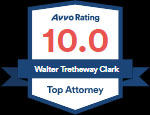Opioid addiction has created a public health crisis in the U.S., and many entities are fighting back with lawsuits against big pharma. The lawsuits allege the drug companies played a role in the epidemic, which has grown to become the worst drug crisis in American history. Negligence, lack of oversight and fraudulent advertising are some of the behaviors the drug industry has been accused of in the numerous lawsuits that seem to be mounting by the day.
How Serious is the Problem?
In 2016, the U.S. experienced the largest increase in drug deaths in recorded history. More than 60,000 people died from opioids last year, and early data shows that the number will likely increase in 2017.
More than 2 million Americans are physically dependent on opioids, and nearly 100 million have a prescription for them. Moreover, drug overdoses are the leading cause of death for Americans under the age of 50.
The epidemic is also having a profound effect on local economies. Health care costs associated with the treatment or prevention of opioid overdoses sit around $50-$80 billion a year. Additionally, emergency department and inpatient care for opioid poisonings costs roughly $20 billion a year. Costs extend far beyond these numbers, though. Research shows that employees with addictions function at about 75% productivity. Thus, businesses are losing money on their addicted employees. One study showed that businesses lost $25.6 billion in the form of lost earnings and employment.
There is also the economic cost of the dramatic loss of human life due to opioid-related deaths. A conservative estimate puts this number somewhere between $100-$150 billion a year.
Did Big Pharma Put Profits Over People?
To address the opioid crisis plaguing the U.S., many state and local governments have begun to file massive lawsuits against opioid manufacturers and distributors. The epidemic has affected every state in the U.S., but some have been hit especially hard. Some of the lawsuits point to opioid distributors for failing to properly oversee the distribution of these highly addictive substances.
Take West Virginia for example. According to the Drug Enforcement Agency (DEA), the “Big Three” prescription drug distributors—McKesson, AmerisourceBergen and Cardinal Health—distributed enough hydrocodone and oxycodone into the state within six years to provide 235 pills to every person in the state. In that time, more than 1,700 fatally overdosed on painkillers in West Virginia.
The Big Three are responsible for distributing 85% of all prescription drugs in the U.S. Thus, it stands to reason that these companies are not blameless for the flooding of communities with addictive opioids.
“Big Three” Failed to Report Suspicious Drug Orders
All three of these distributors were already on notice by the DEA for failing to report suspicious orders of drugs for nearly a decade. In 2008, McKesson paid $13.25 million to settle the DEA claims that the company failed to report hundreds of suspicious orders from online pharmacies. And this year the company paid a whopping $150 million to settle another DEA claim with the same accusations.
Distributors are not the only ones under fire. Many of the lawsuits target drug manufacturers. More than 25 civil cases were filed this year against top pharmaceutical companies. One such suit was filed in July by Jersey County, Illinois. The lawsuit named Purdue Pharma, Johnson & Johnson’s subsidiary Janssen Pharmaceutical and Teva Pharmaceuticals. The suit alleges that the companies made billions in profits through “deceitful advertising and fraudulent conduct.” The pharmaceutical companies are accused to paying experts to give misleading presentations to doctors, patients and medical groups. These presentations downplayed the risk of addiction and abuse with prescription painkillers.
States Join Coalition to Investigate Big Pharma
In June, a group of attorneys general from 25 states announced that they would be investigating the marketing and sales practices of pharmaceutical companies to distribute painkillers. The Tennessee Attorney General is one of the main leaders in the investigation. In his state, there are more prescriptions for opioids than there are people. And the heroin overdose death rate increased by 43.5% in one year. Congressional and Senate investigations are also scrutinizing the pharmaceutical industry.
“The opioid epidemic has taken an incomprehensible toll on our nation. It is time for the companies that deceived people about their products and failed to properly oversee their distribution to take responsibility for their role in the problem,” said Attorney Walter Clark, founder of Walter Clark Legal Group.
Our firm has been handling personal injury cases throughout the California Low Desert and High Desert communities for over 30 years. With a 95% success rate, the California personal injury attorneys at Walter Clark Legal Group will fight to hold those responsible for your loss accountable and win compensation to cover medical bills, lost wages, and pain and suffering. If you have been injured and want to discuss your legal options, contact us today for a free consultation with an experienced personal injury lawyer. We have offices in Indio, Rancho Mirage, Victorville, and Yucca Valley and represent clients through the entire California Low Desert and High Desert communities.
DISCLAIMER: The Walter Clark Legal Group blog is intended for general information purposes only and is not intended as legal or medical advice. References to laws are based on general legal practices and vary by location. Information reported comes from secondary news sources. We do handle these types of cases, but whether or not the individuals and/or loved ones involved in these accidents choose to be represented by a law firm is a personal choice we respect. Should you find any of the information incorrect, we welcome you to contact us with corrections.
- What To Do If You Have Been Injured At A Concert In California? Mar 27,2024
- Walter Clark Legal Group Reimburses Thanksgiving Ride Fares Nov 14,2023
- Walter Clark Legal Group Donates Backpacks to Booker T. Washington Elementary School Aug 22,2023
- Walter Clark Legal Group Donates Backpacks to Underserved Students Aug 22,2023
- Walter Clark Legal Group Reimburses Labor Day Ride Fares Aug 21,2023
- 2023 Safe Ride Home Program Jun 21,2023





















